What is the best generator for your home?
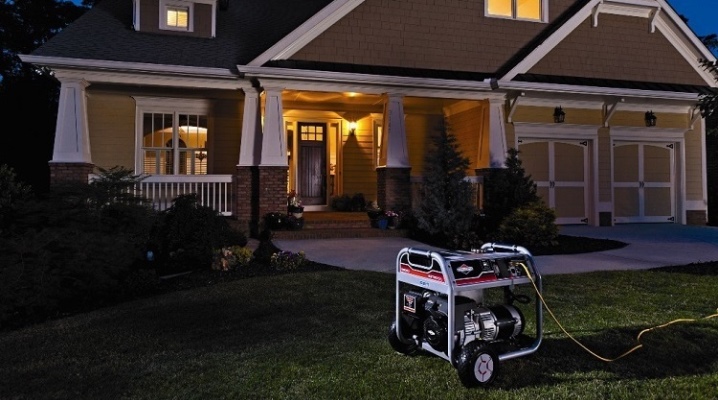
When deciding which model of generators for a country house is better to choose - gasoline, diesel, water or another, you have to pay attention to many points. First of all, environmental friendliness, safety, equipment power and the cost of its maintenance are important. The rating of electric generators for 3, 5-6, 8, 10 kW for a private house will help you figure out which manufacturers you should trust.
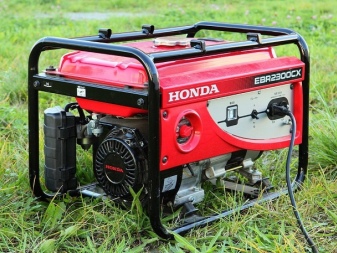
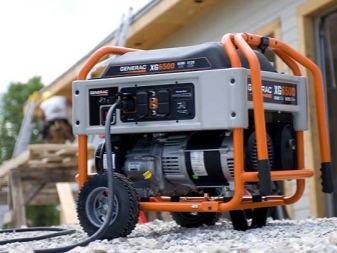
How to choose the type?
When choosing a generator for your home, you have to pay attention to the type of its design, because it is this factor that often determines the availability and efficiency of the equipment. DFor a private cottage or other residential building for 1-2 families, autonomous power supplies are most often considered as backup. An exception is a water station - a mini-hydroelectric power station, which itself generates electric current due to the movement of water. But for the installation of such equipment, it is necessary to have access to a flowing reservoir, and not in general use, or at least with a dedicated coastal zone on the site.
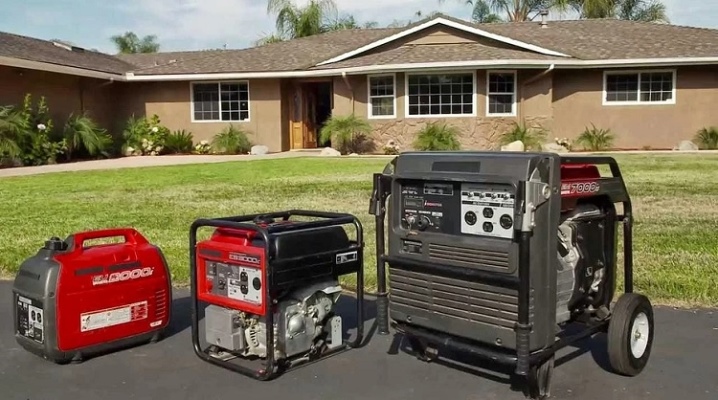
For a country house far from the river, it is better to choose an electric generator that can run on fairly cheap fuel. These include the following varieties.
- Gas. Not a bad option if the site has a main source of supply of resources. Connection to it is paid, requires approval, but the cost of 1 kW of electricity is significantly reduced. Cylinder fuel gas generators are quite dangerous to use, resource consumption is high - such a solution is simply not profitable for frequent use.
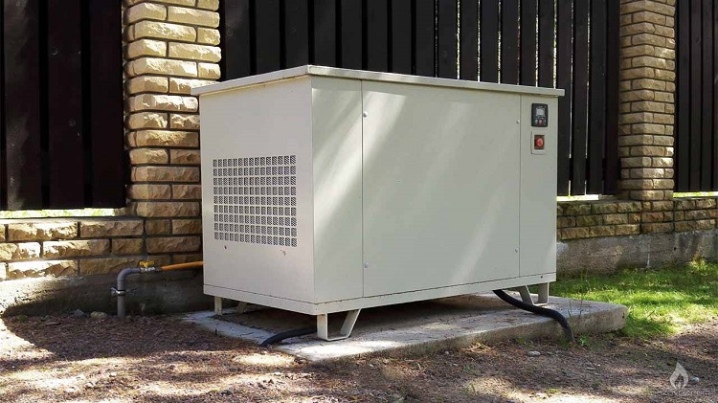
- Diesel. They cost almost twice as much as their gasoline counterparts, but are much more reliable and durable, and are cheaper to operate. This is the best option for providing electricity to a construction site or a new home. A backup power supply of this type is not replaceable in remote areas, where the power supply is often not stable enough.
Diesel generators have restrictions on atmospheric temperatures at the place of operation - if the indicators drop to -5 degrees, the equipment simply will not work.
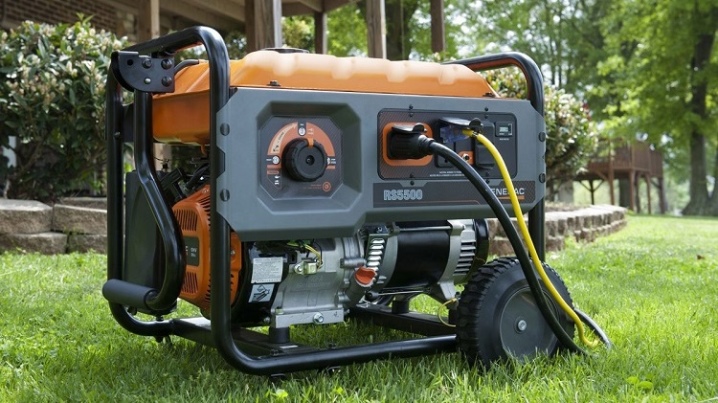
- Gasoline. The most affordable, small-sized, relatively quiet in operation. This is a country or camping option that allows you to charge mobile devices, connect an electric stove or a refrigerator.
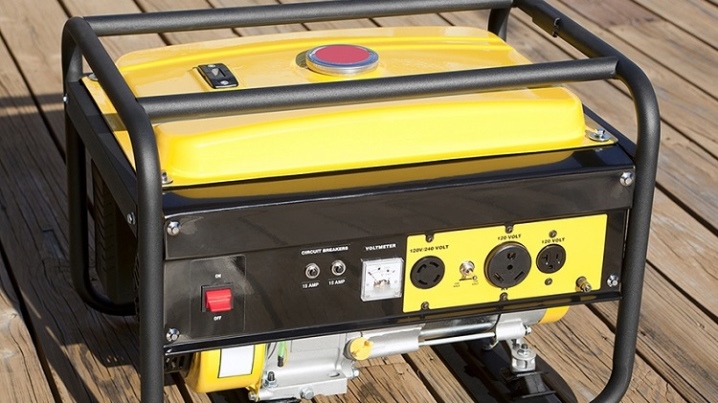
- Inverter gasoline. They differ in a more stable supply of current, regulation of its characteristics. They are significantly more expensive than conventional ones, but provide economical fuel consumption. Compact dimensions make such models a good choice for houses with permanent residence of people.
The most expensive and rare models are combined ones. They can operate on several types of fuel, most often they are used to provide everyday life in the field. For a country house, such a system would be overly complicated and expensive.
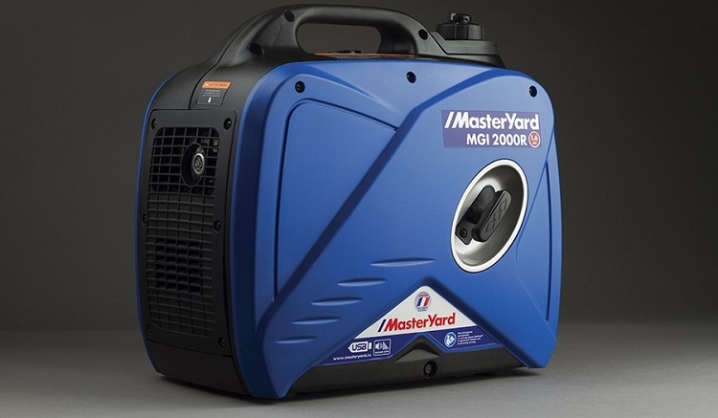
Popular models rating
The top models of electric generators for a private house are compiled taking into account their cost, power and functionality. The best models are available at every price point. Moreover, sometimes there is simply no need to overpay. Especially when it comes to short-term power outages that do not happen very often.
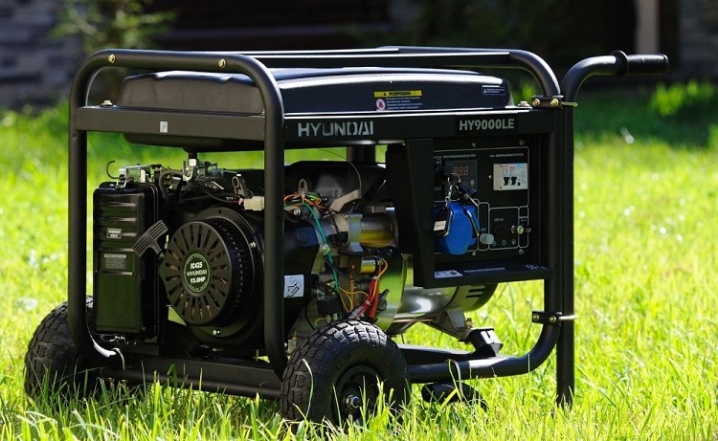
Budget
In the most affordable price category, there are models of electric generators running on gasoline. They are the cheapest, suitable for short-term power supply or connecting electrical appliances in the country, on a hike. They are often made in a compact design, therefore, they are convenient for transportation.
- Champion GG951DC. Inexpensive single-phase 650 W gas generator, includes 1 socket for 220 V and 1 for 12 V. The model has air cooling, manual start, weighs 16 kg. This option can be chosen for travel or short-term power supply to the cottage.
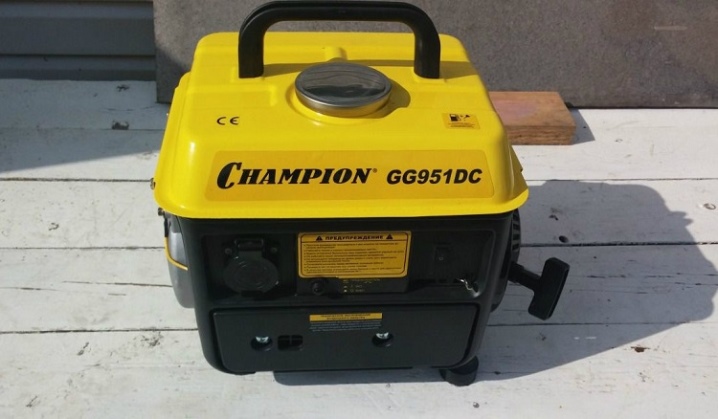
- "Drummer UBG 3000". A simple manual petrol generator. The single-phase model generates a current with a voltage of 220 V, 2 sockets are located on the case. The design is lightweight and easy to store. The maximum power of 2 kW allows you to solve the problem of summer energy supply to a summer cottage or a small house.
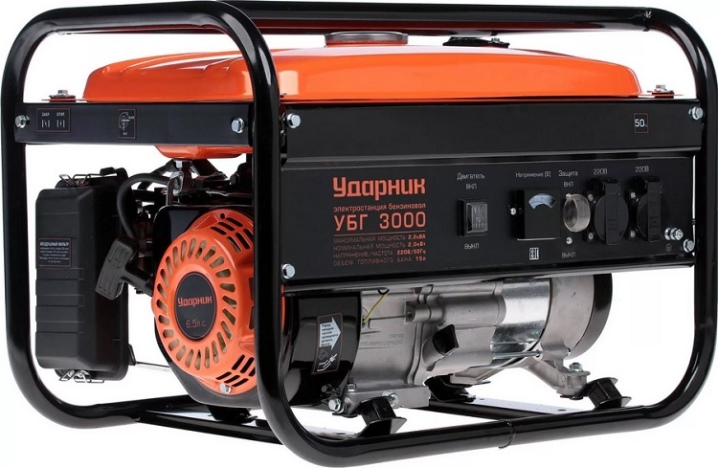
- "SPECIAL SB-2700-N". Compact petrol model with a generation of up to 2.5 kW of electricity. The structure is air-cooled, manually started. On the case there is 1 socket for 12 V and 2 for 220 V.
A good solution for solving short-term power outages in a country house.
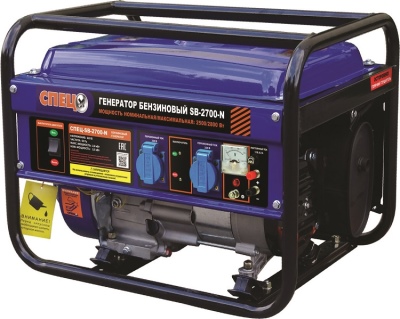
Middle price segment
This category contains gasoline, diesel and gas vehicles with different characteristics - for short-term or long-term operation. Among the popular models are the following.
- "SPECIAL HG-2700". Combined gas-petrol generator with a capacity of 2200 W. The model has a simple design, can be connected to cylinders, start is carried out manually, cooling is carried out by air. There are 3 sockets on the case: 1 for 12 V and 2 for 220 V.
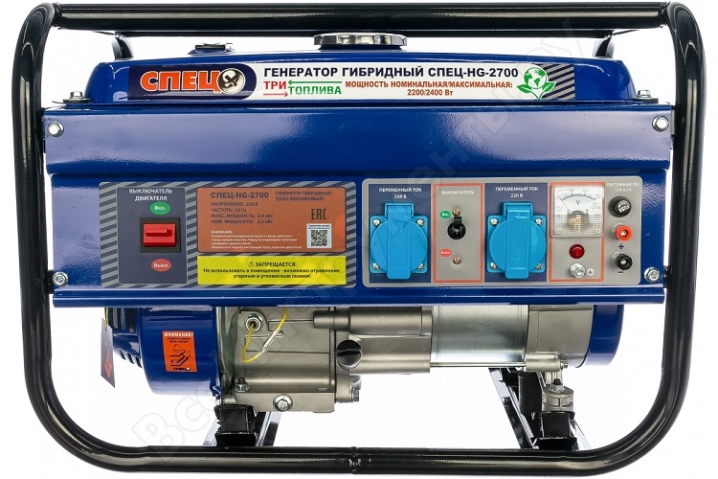
- Patriot GP 2000i. Compact inverter model in a closed case, designed for 4 hours of continuous operation. This is a single-phase generator, has a power of 1.5 kW, is manually started, air-cooled. The model has several sockets for connecting devices with different power consumption, including laptops and other electronic equipment.
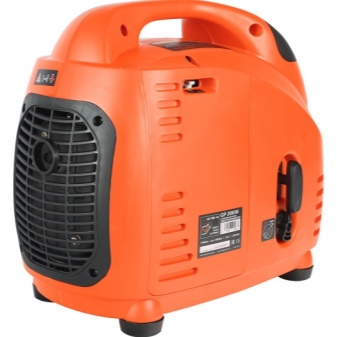
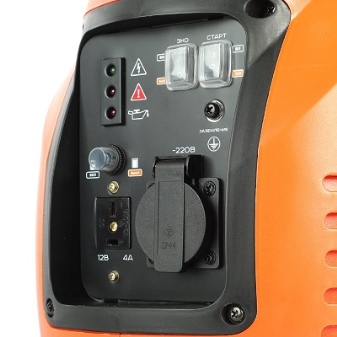
- ZUBR ZIG-3500. Inverter petrol generator with a capacity of 3 kW in a convenient closed case. The model is well adapted for use in a private house, there are 3 sockets on the case. The model is single-phase, it will not cope with heavy loads.
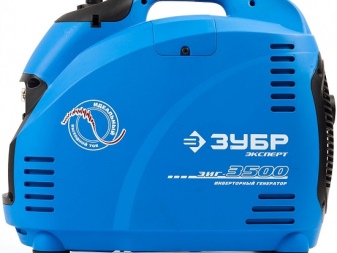
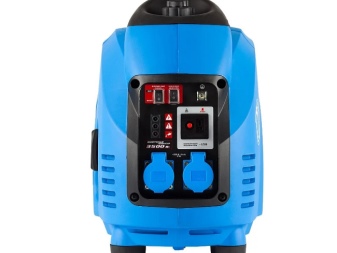
- Hutler DY6500L. A reliable gas generator capable of generating up to 5.5 kW of electricity. The model is suitable for a country house with an average energy consumption, has a compact size and low weight, a convenient frame for installation, there are 2 220 V sockets on the body. The advantage of this generator is the possibility of trouble-free starting even in frost down to -20 degrees.
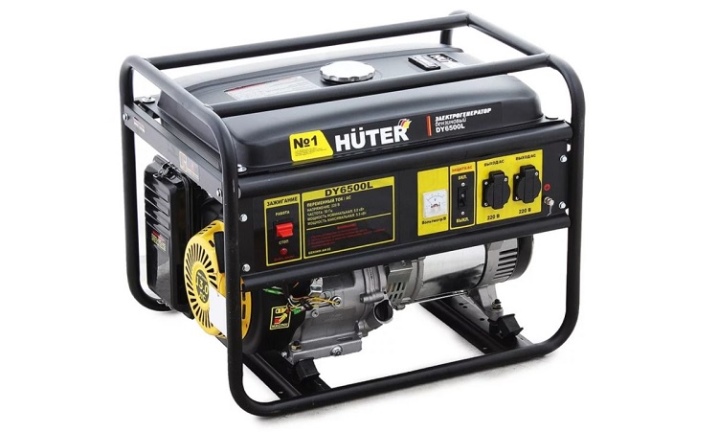
- "Amperos LDG3600CL". Low-power single-phase diesel generator. The low power of 2.7 kW makes this option a good solution for a summer cottage or a private house. The model is equipped with 1 outlet 12 V and 2 220 V. Compact dimensions allow you to conveniently place equipment.
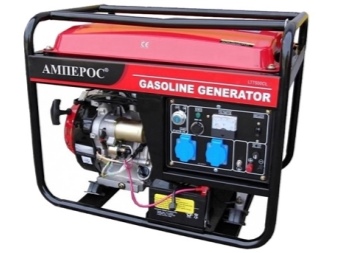
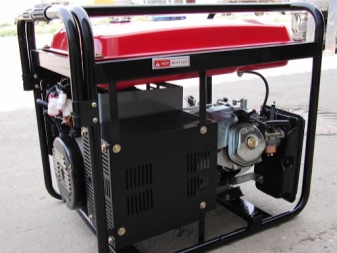
Premium class
In the premium segment of the market, there are high-power gasoline and diesel generators capable of operating for a long time without interruption. Among noteworthy models are the following.
- Hyundai HHY 10000FE. Gas generator for generating single-phase current, with a maximum power of 7.5 kW. The model has both manual and electric start, air-cooled. There are 2 220 V and 1 12V sockets on the case.
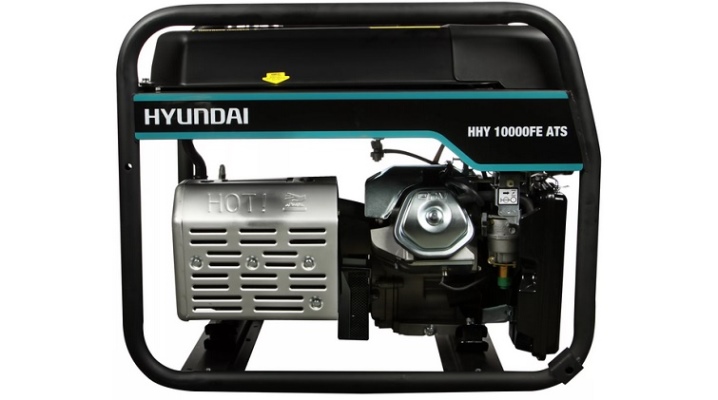
- Champion DG6501E-3. Three-phase generator with a power of 4960 W, equipped with an electric and manual starting system, air cooling. On the case there are 3 sockets from 12 to 380 W - this is convenient if devices with different characteristics and network connection are used in the house. The model is adapted for transportation.
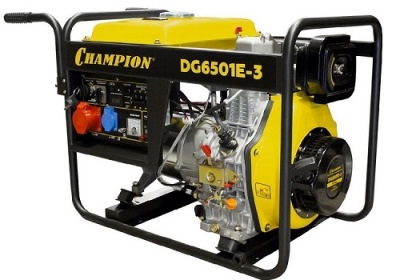
- Hitachi E40 (3P). Three-phase petrol generator with a power of 3.3 kW. In addition to 2 220 V sockets on the case, there is 1 380 V. The equipment is started manually, cooled by air.
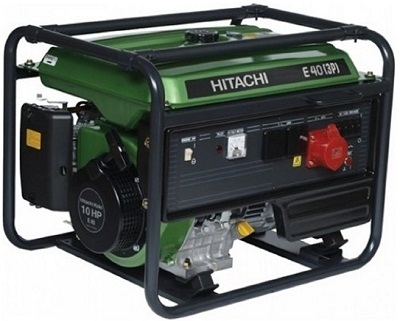
- Hyundai DHY-6000 LE-3. Diesel generator on an easy-to-transport wheelbase. The model is three-phase, there are 3 sockets on the case, including 12 volts. A power of 5 kW is enough to supply the house with power interruptions.
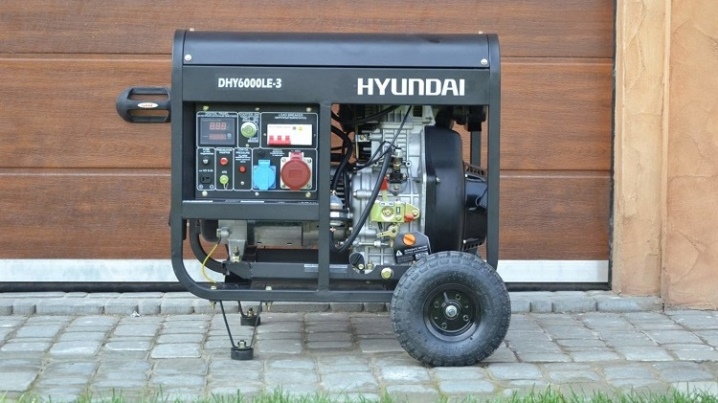
- TCC SDG-6000 EH3. Diesel generator on a comfortable frame with its own wheelbase. Power reaches 6 kW, electric or manual start, 3 sockets on the case.
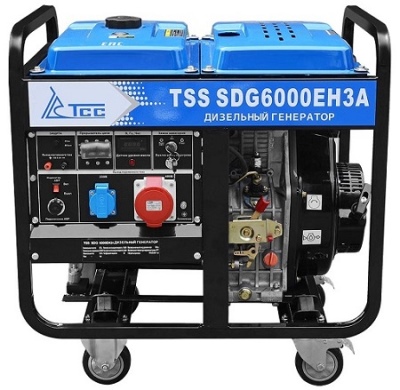
- Champion DG10000E. Powerful single-phase diesel generator for a country house or cottage. A resource of 10 kW is enough to launch the most powerful equipment, a boiler, a boiler, a pump. The model has a solid frame, air cooling, wheelbase. Includes 1 socket for 12 V and 2 for 220 V, manual and electric start.
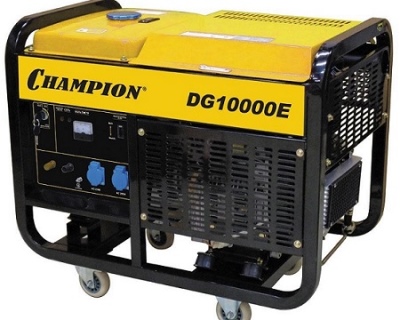
Main selection criteria
It is not enough just to study the popularity ratings. When choosing an electric generator as a source of temporary or permanent power supply, a number of important criteria must be taken into account.
- Power. The most important characteristic of the equipment, which determines how many electrical appliances the generated energy will be enough for, it is calculated with a margin of about 20%. For example, a 3 kW model will be able to ensure the operation of a refrigerator, TV, electric stove, suitable for a small country house. Generators for 5-6 kW will allow you to turn on a low-power heater, not to freeze in winter. Models from 8 kW can be used in cottages and households with an area of 60 m2, without denying themselves the basic benefits of civilization such as a boiler and heating.
- The quality of the supplied current. This is an important point if sensitive appliances and consumer electronics are to be powered from an autonomous network. Here it is better not to save money, but to choose inverter equipment that allows you to accurately set the permissible range of characteristics. Synchronous electric generators have also proven themselves well, but asynchronous models are best left for construction or welding work, powering machines in the workshop.
- Appointment. For permanent or regular use, it is better to choose household power sources from 5 kW. For construction work, maintenance of a home workshop, semi-industrial models for 10-13 kW are suitable.
- Construction type. Stationary generators are commonly used in non-residential applications. For a private country house, a model on a stable steel frame is suitable - with or without an additional wheelbase. If the noise level is important, it is worth choosing the closed type options, with an additional soundproofing casing.
- Duration of continuous work. For home use, options that automatically turn off after 3-4 hours are not suitable. It is optimal if the generator can work without stopping for 10 or more hours. In liquid fuel models, it is also worth considering the capacity of the tank. It is good if from 1 refueling the equipment will provide energy production for a sufficiently long time.
- Options. Among the useful functions of modern electric generators, one can single out the presence of additional sockets (usually there are no more than 2 on the case), a built-in starter and a battery that allow starting from a key, the ability to connect automation - to activate the operation of equipment when the voltage in the home network drops.
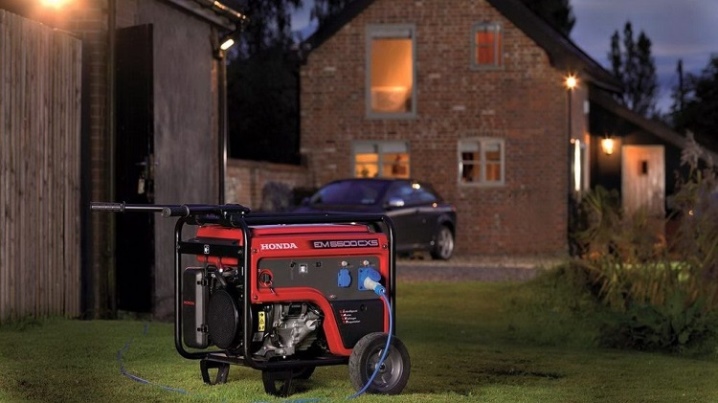
Based on these recommendations, each homeowner will be able to choose an electric generator with the desired characteristics.
Even in budget categories, it is quite possible to find a model of equipment that can provide uninterrupted power supply in a single cottage or in the country. You just need to correctly determine the main parameters and the optimal type of fuel used.
For information on which generator for the house is better to choose, see the next video.













The comment was sent successfully.